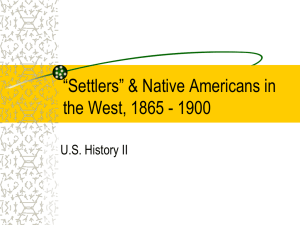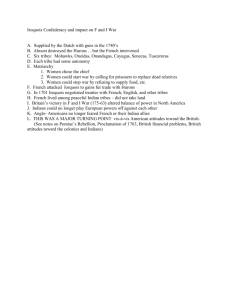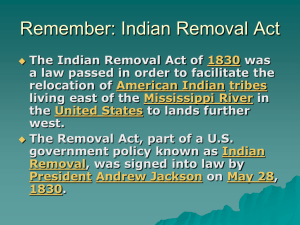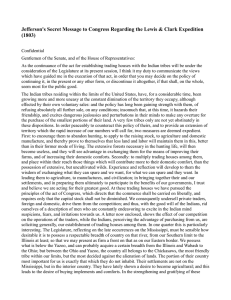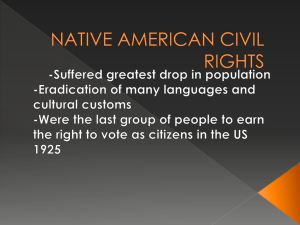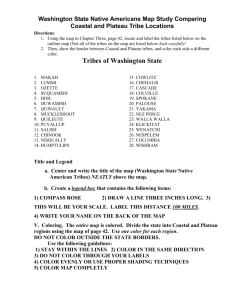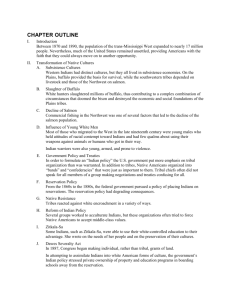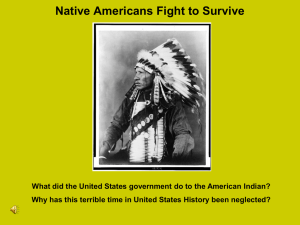last indian wars
advertisement
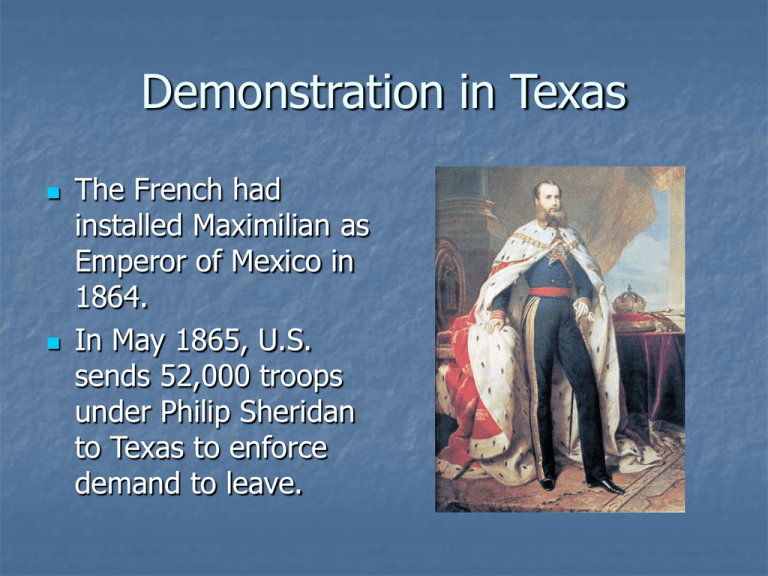
Demonstration in Texas The French had installed Maximilian as Emperor of Mexico in 1864. In May 1865, U.S. sends 52,000 troops under Philip Sheridan to Texas to enforce demand to leave. The Last of the Indian Wars Occur west of the Mississippi. Vast area, various terrain: plains, desert mountains. Sparked by white expansion. U.S. seeks to restrict indigenous peoples to reservations. Before mid-nineteenth century… Tribes east of the Mississippi relegated to reservations or moved west. “Great American Desert” Area between the Mississippi and the mountains not seen as desirable by whites. Believed Indians could live there undisturbed, used to justify removal of eastern tribes. These attitudes change in years before the Civil War. Conflicts erupt during the Civil War 1862–64: Great Sioux Uprising, begins in MN. Most infamous incident: Battle or Massacre of Sand Creek (CO), Nov. 29, 1864 Purpose of Army on the frontier Convince native groups to abide by treaties, move to reservations. Protect trails, roads, railroads and white settlements. Campaign against recalcitrant, violent tribes. Warfare on the western frontier Indians employ ambush, hit-and-run tactics, avoid pitched battles. Native groups nomadic. Horses provide mobility. Army will resort to attacks on camps for “decisive” results Will also employ friendly Indians as scouts Conflict along the Bozeman Trail Sioux led by Red Cloud resist white encroachment, 186668. Warriors ambush and kill all 81 men under Capt. William Fetterman near Ft. Phil Kearny, Dec. 21, 1866. Indian communities targets To force tribes of the southern Plains to enter reservations, General Philip Sheridan planned a campaign against native winter camps at the end of 1868. Sent multiple columns from different directions. Main engagement of the campaign featured Lt. Col George A. Custer’s 7th Cavalry Washita River, Nov. 29, 1868 Custer attacks Black Kettle’s Camp. Red River War, 1874-75 Sparked in part by killing of buffalo by white hunters. Featured numerous engagements, including Army attack on winter camp Leads to subjugation of southern Plains tribes Conflicts with Northwestern Tribes Modoc War, 1872-73 Nez Perce War, 1877 Southwest: Problems with the Apache Hostilities last until 1886. Featured command of General George Crook (1871-75, 1882-86). Fighting ends with surrender of Geronimo. Little Big Horn, June 25, 1876 Custer’s detachment of the 7th Cavalry annihilated.
